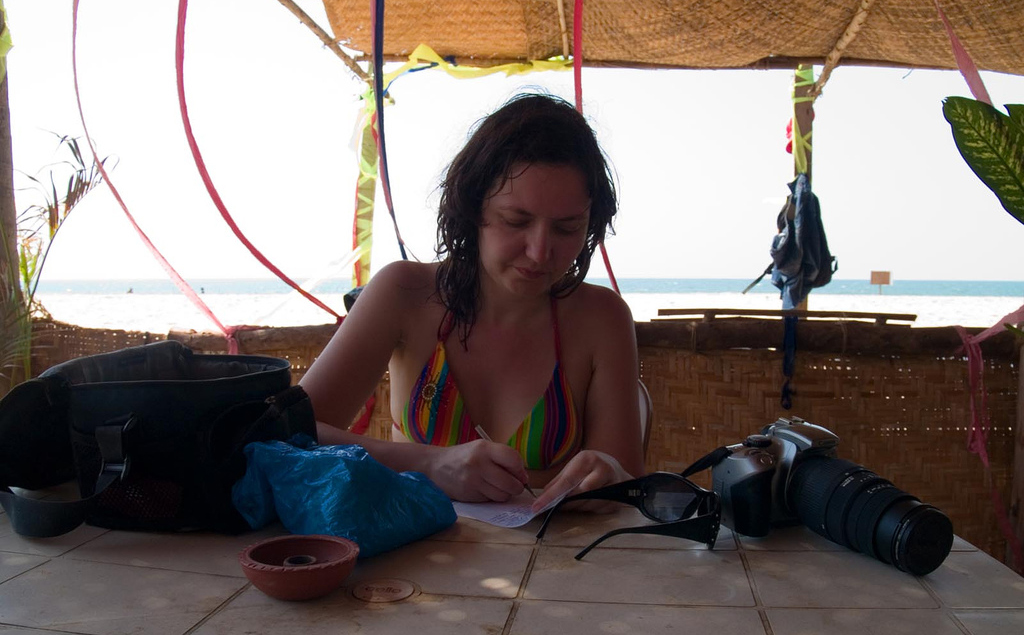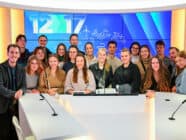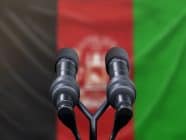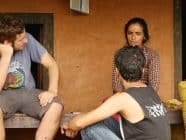 Lonely Planet author Brandon Presser explains the unique skill set necessary for travel writing.
Lonely Planet author Brandon Presser explains the unique skill set necessary for travel writing.
After earning a degree in art history from Harvard University and going to work for the Louvre Museum in Paris, Brandon Presser turned to travel journalism to make some extra money. Today he is not only an author for Lonely Planet, the largest publisher of tourism guides, but also provides training for his company’s new generation of essayists.
While finding a job as a travel writer is not an impossible feat for a young journalist, “selling yourself” to publishing houses can be a difficult challenge. Writers must possess a range of specific characteristics. The applicant must be endowed with a strong sense of language, be a good researcher, communicable, intelligent, full of enthusiasm and able to incessantly knock on the doors of publishing houses until they are opened.
Presser will often meet people convinced they want to become travel writers, but are not ready. “People often say it’s the best job in the world,” says Presser, “because they think that I have a chance to visit the most fabulous places in the world, relax in exclusive hotels, get drunk on the beach and then publish a tourist guide with my name on it.”
Unfortunately, as Presser explains, this is a much more romantic view of the field, with planning and information-gathering being the most integral part of his time on the road. “Traveling is my job. Approximately 80 percent of my day is spent communicating with complete strangers. I have to study the public transport schedules and make calculations in order to plan my trips as successfully as possible, while obtaining valid information.”
Presser also emphasizes that the job does not lend itself to creativity, “because everything is very structured around a distinct method. For instance, the description of a restaurant never exceeds 100 words.”
Presser does not have formal journalism training, and he disagrees that a degree in journalism is the most important factor in becoming a travel journalist – although he does not deny that the job integrates a number of journalistic vales held in high regard, such as avoiding personal opinion on matters related to local traditions.
Presser advises journalists to think as freelancers when searching for work. “You should always do your best to convince an editor why it is you who must be sent to the destination and why it is you who should be entrusted to create a particular tourist guide or article.”
When asked about the impact of travel blogs and the niche of travel descriptions, Presser answers that he has dual feelings. “I think, at least in the English-speaking world of blogging, travel blogging has lost its topicality, at least it is no more at the same level as it was before the economic crisis of 2008. I see a lack of professionalism, including grammatical mistakes and poor breadth and variety in the descriptions.”
Another urgent matter is the reliability of the information provided by blogs, which is typically based on whether or not the site features paid advertising content.
“I am aware that there are travel companies that invite members of the media on paid press trips but this is not my philosophy on traveling,” Presser explains. “I don’t like to accept things for free in exchange for writing flattering copy, I enjoy working for a solid brand which allows me to visit the locations I consider useful rather than those advertising on the site.”
When asked how Presser views the future of Lonely Planet, including his own career as a travel essayist, he explains, “Travel journalism is part of my way, but not the end of this road. [Lonely Planet] will not disappear for the time being.”
Tags: Brandon Presser, Journalism Training, Lonely Planet, Travel Blogger, Travel Blogs, Travel Essayist, Travel Journalism














































